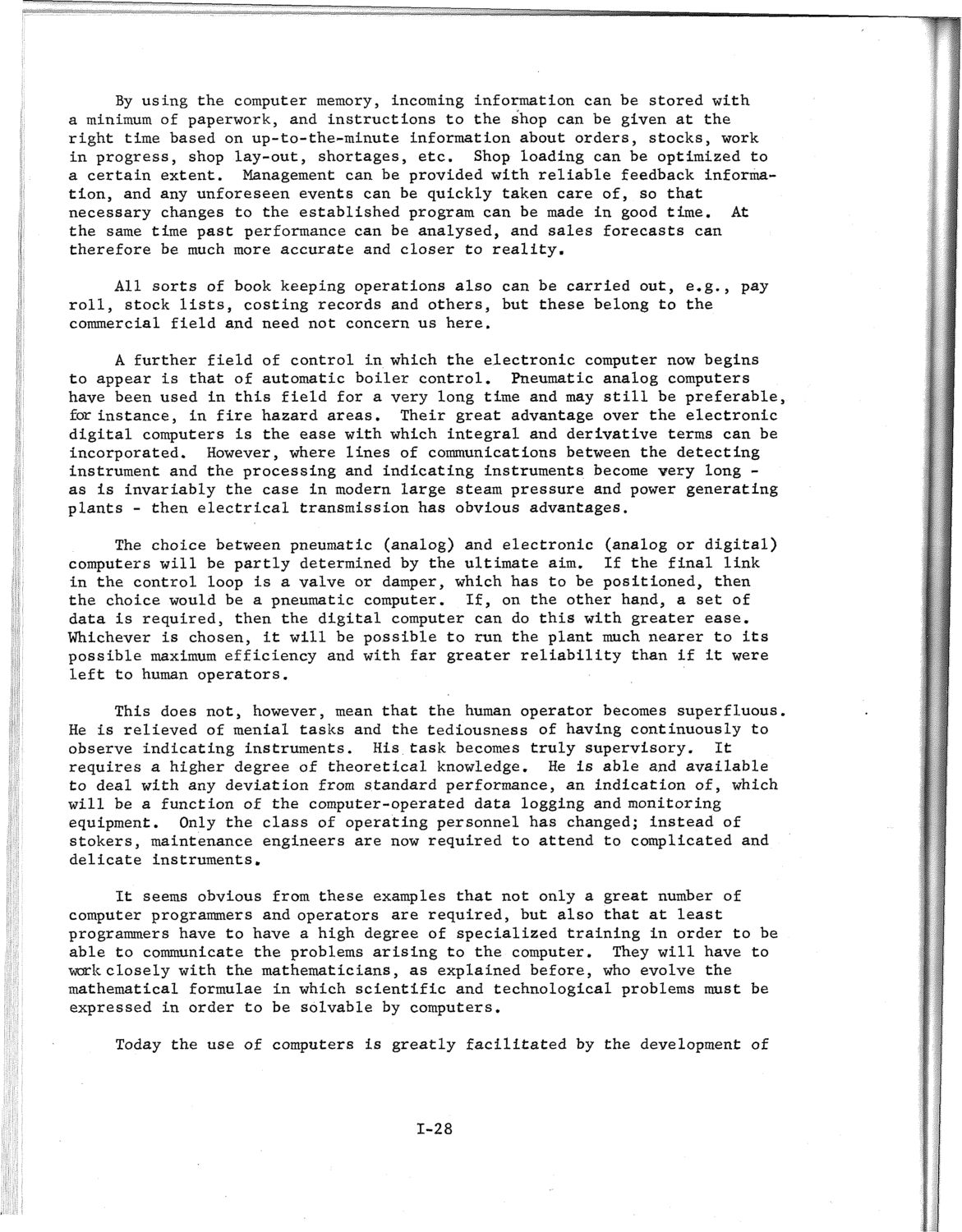| |
| |
Caption: SWE - Proceedings of the First International Conference of Women Engineers and Scientists
This is a reduced-resolution page image for fast online browsing.

EXTRACTED TEXT FROM PAGE:
By using the computer memory, incoming information can be stored with a minimum of paperwork, and instructions to the shop can be given at the right time based on up-to-the-minute information about orders, stocks, work in progress, shop lay-out, shortages, etc. Shop loading can be optimized to a certain extent. Management can be provided with reliable feedback information, and any unforeseen events can be quickly taken care of, so that necessary changes to the established program can be made in good time. At the same time past performance can be analysed, and sales forecasts can therefore be much more accurate and closer to reality. All sorts of book keeping operations also can be carried out, e.g., pay roll, stock lists, costing records and others, but these belong to the commercial field and need not concern us here. A further field of control in which the electronic computer now begins to appear is that of automatic boiler control. Pneumatic analog computers have been used in this field for a very long time and may still be preferable, for instance, in fire hazard areas. Their great advantage over the electronic digital computers is the ease with which integral and derivative terms can be incorporated. However, where lines of communications between the detecting instrument and the processing and indicating instruments become very long as is invariably the case in modern large steam pressure and power generating plants - then electrical transmission has obvious advantages. The choice between pneumatic (analog) and electronic (analog or digital) computers will be partly determined by the ultimate aim. If the final link in the control loop is a valve or damper, which has to be positioned, then the choice would be a pneumatic computer. If, on the other hand, a set of data is required, then the digital computer can do this with greater ease. Whichever is chosen, it will be possible to run the plant much nearer to its possible maximum efficiency and with far greater reliability than if it were left to human operators. This does not, however, mean that the human operator becomes superfluous. He is relieved of menial tasks and the tediousness of having continuously to observe indicating instruments. His task becomes truly supervisory. It requires a higher degree of theoretical knowledge. He is able and available to deal with any deviation from standard performance, an indication of, which will be a function of the computer-operated data logging and monitoring equipment. Only the class of operating personnel has changed; instead of stokers, maintenance engineers are now required to attend to complicated and delicate instruments. It seems obvious from these examples that not only a great number of computer programmers and operators are required, but also that at least programmers have to have a high degree of specialized training in order to be able to communicate the problems arising to the computer. They will have to work closely with the mathematicians, as explained before, who evolve the mathematical formulae in which scientific and technological problems must be expressed in order to be solvable by computers. Today the use of computers is greatly facilitated by the development of 1-28
| |